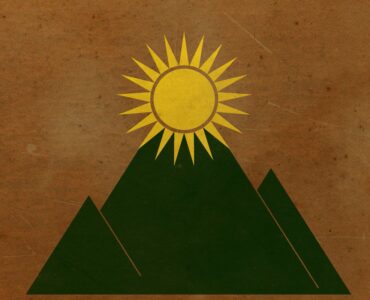
The Holy Books Of Islam
While Muslims believe God revealed many scriptures throughout history, there are four main holy books specifically mentioned by name in the Qur’an that are considered essential to believe in. The Qur’an is the final,11th authoritative, and protected revelation, while the others are considered to have lost their original form.
Islam’s Four Main Holy Books
- Tawrat (Torah): According to the Qur’an, the Tawrat (Torah) was revealed to Moses, but Muslims believe that the current Pentateuch, although it retains the main message, has suffered corruption over the years. Moses and his brother Haroon (Aaron) used the Torah to preach the message to the Children of Israel. The Qur’an implies that the Torah is the longest-used scripture, with the Jewish people still using the Torah today, and that all the Hebrew prophets would warn the people of any corruptions that were in the scripture. Jesus, in Muslim belief, was the last prophet to be taught the Mosaic Law in its true form.
- Zabur (Psalms): The Qur’an mentions the Psalms as being the holy scripture revealed to David. Scholars have often understood the Psalms to have been holy songs of praise. The current Psalms are still praised by many Muslim scholars, but Muslims generally assume that some of the current Psalms were written later and are not divinely revealed.
- Injil (Gospel): The İnjil (Gospel) was the holy book revealed to Jesus (Isa), according to the Qur’an. Although many lay off Muslims believe the Injil refers to the entire New Testament, scholars have clearly pointed out that it refers not to the New Testament but to an original Gospel, which was sent by Allah, and was given to Jesus. Therefore, according to Muslim belief, the Gospel was the message that Jesus, being divinely inspired, preached to the Children of Israel. The current canonical Gospels, in the belief of Muslim scholars, are not divinely revealed but rather are documents of the life of Jesus, as written by various contemporaries, disciples and companions. These Gospels contain portions of Jesus’s teachings but do not represent the original Gospel, which was a single book written not by a human but was sent by Allah.
- The Qur’an: The Qur’an (literally meaning “the recitation”) is the central religious text of Islam, which Muslims believe to be a revelation from Allah. It is widely regarded as the finest work in classical Arabic literature. The Qur’an is divided into chapters (surah in Arabic), which are then divided into verses (ayah).
Muslims regard the Qur’an as the most important miracle of Muhammad, and proof of his prophethood, and the culmination of series of divine messages that started with the messages revealed to Adam and ended with Muhammad. They consider the Qur’an to be the only revealed book that has been protected by Allāh from distortion or corruption.
The Qur’an is used along with the Hadith to interpret Shari’a law. During prayers, the Qur’an is recited only in Arabic.
Islam’s Three (internal) Holy Books (Qur’an, Hadith, Sunnah) And Other Scriptures
The revealed books are the records which Muslims believe were dictated by other scriptures mentioned or referenced include the Scrolls of Abraham (Suhuf Ibrahim). Some Islamic traditions refer to a larger number of total divine revelations (sometimes cited as 104, including earlier pages or suhuf), but the four listed above are the primary, major books recognized. Belief in these revealed books is a fundamental article of faith in Islam to various Islamic prophets throughout the history of mankind – all these books promulgated the code and laws of Islam. The belief in all the revealed books is an article of faith in Islam and Muslims must believe in all the scriptures to be a Muslim. Muslims believe the Qur’an, the final holy scripture, was sent because all the previous holy books had been either corrupted or lost. Nonetheless, Islam speaks of respecting all the previous scriptures, even in their current forms.
The Qur’an (literally meaning “the recitation”) is the central religious text of Islam, which Muslims believe to be a revelation from Allah. It is widely regarded as the finest work in classical Arabic literature. The Qur’an is divided into chapters (surah in Arabic), which are then divided into verses (ayah).
Muslims regard the Qur’an as the most important miracle of Muhammad, and proof of his prophethood, and the culmination of series of divine messages that started with the messages revealed to Adam and ended with Muhammad. They consider the Qur’an to be the only revealed book that has been protected by Allāh from distortion or corruption.
The Qur’an is used along with the Hadith to interpret Shari’a law. During prayers, the Qur’an is recited only in Arabic.
- The Hadith: Hadith (ahadith – pl) are the collections of the reports of the teachings, deeds and sayings of Muhammad. The term comes from the Arabic meaning “report,” “account,” or “narrative.” The Hadith literature is based on oral reports that were in circulation in society after the death of Muhammad scholars then compiled these Hadith together in collections.
- The Sunnah: The Sunnah is the way of life prescribed for Muslims on the basis of the teachings, practices, and interpretations of the Qur’an. The sunnah of Muhammad includes his specific words, habits, practices, and silent approvals: it is significant because it addresses ways of life dealing with friends, family and governmental Recording the sunnah was an Arabian tradition and, once people converted to, they brought this custom to their religion. The sunnah is a source of Islamic law, second only to the Qur’an.
Other Islamic Scriptures
Other scriptures mentioned or referenced include the Scrolls of Abraham (Suhuf Ibrahim). Some Islamic traditions refer to a larger number of total divine revelations (sometimes cited as 104, including earlier pages or suhuf), but the four listed above are the primary, major books recognized. Belief in these revealed books is a fundamental article of faith in Islam.
The Qur’an mentions some Islamic scriptures by name, which came before the Qur’an:
- Book of Enlightenment (Arabic: Kitābu ’l-Munīr): The Qur’an mentions a Book of Enlightenment, which has alternatively been translated as Scripture of Enlightenment or the Illuminating Book. It mentions that some prophets, in the past, came with clear signs from God as well as this particular scripture.
- Books of Divine Wisdom (Arabic: possibly identified as az-Zubur): The Qur’an mentions certain Books of Divine Wisdom, translated by some scholars as Books of Dark. Prophecies, which are a reference to particular books granted to some prophets, wherein there was wisdom for man. Some scholars have üùsuggested that these may be one and the same as the Psalms as their root Arabic word, Zubur (Qur’an 35:25) – the plural for the word “Scriptures,” comes from the same source as the Arabic Zabur for the Psalms.
- Scrolls of Abraham: (Arabic: aṣ-Ṣuḥufi ’l-Ūlā – “Books of the Earliest Revelation” and/or Arabic: aṣ-Ṣuḥufi ’Ibrahīm) The Scrolls of Abraham are believed to have been one of the earliest bodies of scripture, which were given to Abraham, and later used by Ishmael and Isaac. Although usually referred to as ‘scrolls/manuscript,’ many translators have translated the Arabic Suhuf as ‘the Scriptures.’ The Scrolls of Abraham are now considered lost rather than corrupted, although some scholars have identified them with the Testament of Abraham, an apocalyptic piece of literature available in Arabic at the time of Muhammad. The verse mentioning the “Scriptures” is in Qur’an 87:18-19 where they are referred to as “Books of the Earliest Revelation.”
- Scrolls of Moses: (Arabic: aṣ-Ṣuḥufi ’l-Ūlā – “Books of the Earliest Revelation” and/or Arabic: aṣ-Ṣuḥufi ’l-Mūsā) These scrolls, containing the revelations of Moses, which were perhaps written down later by Moses, Aaron and Joshua, are understood by Muslims to refer not to the Torah but to revelations aside from the Torah. Some scholars have stated that they could possibly refer to the Book of the Wars of the Lord, a lost text spoken of in the Hebrew Bible. The verse mentioning the “Scriptures” is in Qur’an 87:18-19 where they are referred to “Books of the Earliest Revelation.”
The Holy Books Of Islam And Other Scriptures
601 – 001
https://discerning-Islam.org
Last Update: 04/2021




